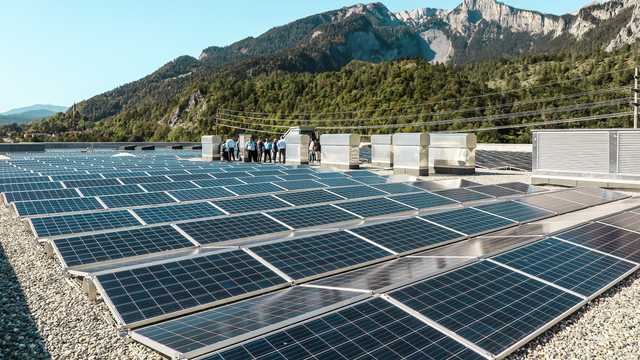
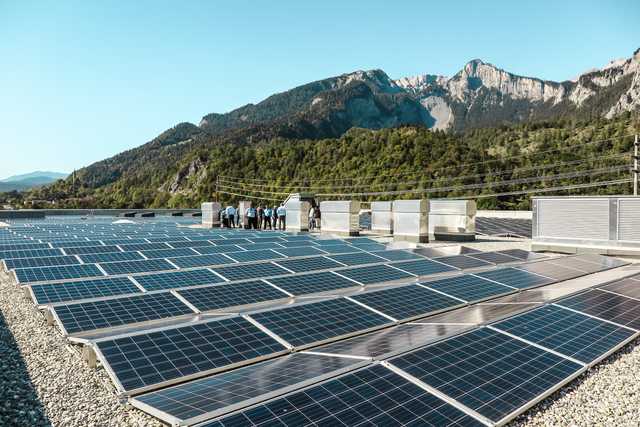
Sustainability is not just about buildings and materials, it is also about relationships. Whether it's with our employees and customers, our partners and suppliers, or the environment and society, long-term relationships play a key role.
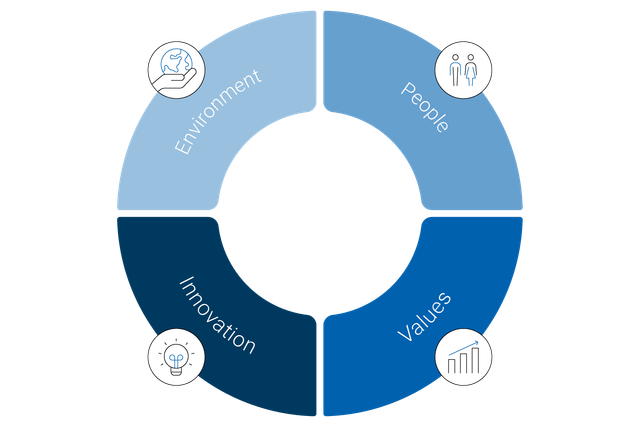
Achieving ISO 14001 certification, we have envisioned the management system to be more holistic than just environment. Including all essential elements of our sustainability strategy, we are introducing a holistic Sustainability Management System (SMS) at our Swiss sites in Bonaduz and Domat/Ems.
The SMS is built on four pillars - planet, people, profit, and innovation. It integrates all ESG topics into daily business and processes, empowers our teams with training, and strengthens collaboration across the value chain.
With the ISO 14001 certification achieved mid 2025, the SMS is fully implemented, helping us minimize our footprint, foster well-being, and create innovative, future-ready solutions. In the coming years, we will continue to improve and embed the system further into the organization's core departments and processes.
As a family enterprise, we think and act with a clear focus on long-term goals and reinvest for the future. It also goes without saying that we comply with the applicable laws and other legal requirements in every country we do business in, an condemn any form of corrupt, anti-competitive conduct, or otherwise illegal behavior. Everywhere we operate, we respect human rights.
We joined the UN Global Compact in July 2023 to be part of the global movement of sustainable businesses and stakeholders, who are working to create the world we would like to have. To live up to our corporate social responsibility, we are committed to increasingly incorporating the 10 principles of the Global Compact into our strategies, directives, and procedures.
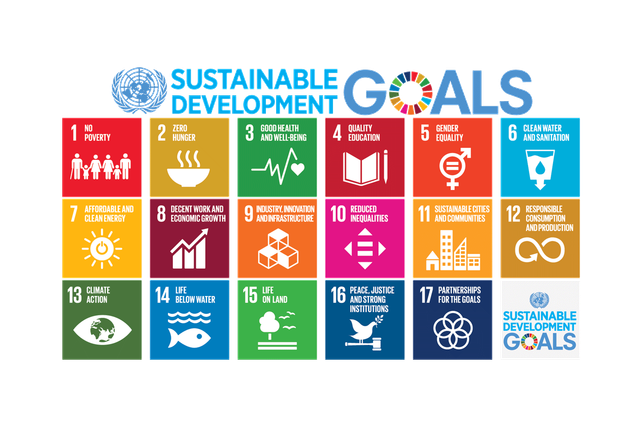
As a globally active company, we are committed to the United Nations' 2030 Agenda and support the sustainable development goals (SDGs) with our sustainability program. We actively support a selection of SDGs in line with our focus, namely all those where we can make a significant contribution to their success through our work.
A special goal for us is SDG3, which aims to ensure healthy lives and promote the well-being of all people and all ages - going directly to the heart of our business.
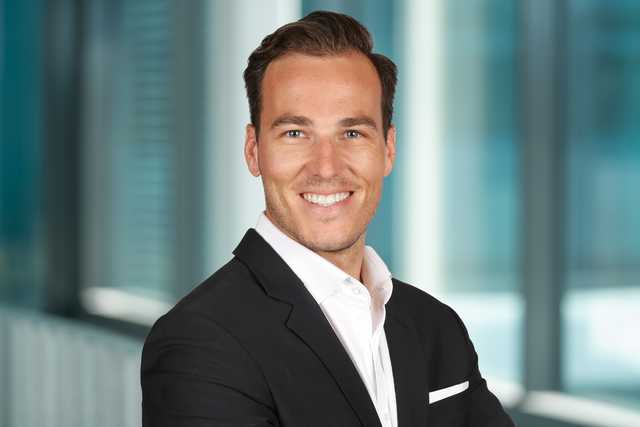
We want to make a real contribution to climate protection and have actively decided to reduce all three scopes of greenhouse gas emissions, so not only those we cause directly, but also indirectly.
Director of Compliance,
Part of the team since 2021
Economic success is important for every company, but so is the future. Hamilton Medical belongs to the Hamilton group of companies, which started measuring its total carbon footprint in 2021 and has set targets for reducing its greenhouse gas emissions by 2030. These have been submitted to the Science Based Targets initiative (SBTi), a worldwide movement of more than 4,000 companies taking action against climate change. Our committed targets are listed on their website.
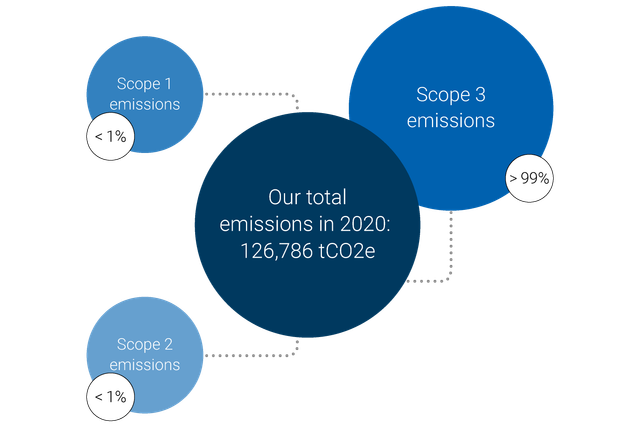
Our calculation and reporting process is based on The Greenhouse Gas Protocol. According to this standard, which is the most widely used worldwide for greenhouse gas accounting, GHG emissions are divided into direct (scope 1) and indirect (scope 2 and 3) emissions.
Compared to a 2020 baseline, we are committed to reducing scope 1 and scope 2 emissions by 42%, and the CO2 intensity of our scope 3 emissions by 52%. All of that by 2030.
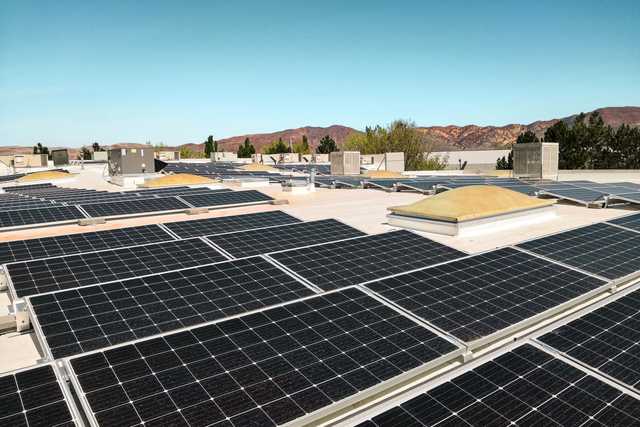
At our Swiss site, we are meeting some of our energy needs with photovoltaic systems. In 2022, we were able to produce 428,000 kWh of clean electricity for our own use. In addition, we draw heat from groundwater to heat and cool our premises, and avoid air conditioning wherever possible.
At our offices in Reno, Nevada, much of the energy consumed there is supplied by the extensive, company-owned system of solar panels on the building's roof, which produced 150,000 kWh in 2022. Our new building (summer 2023), is equiped with LED lighting, energy compliant exterior walls and roof, and efficent plumbing fixtures and drinking water system to reduce our water consumption.
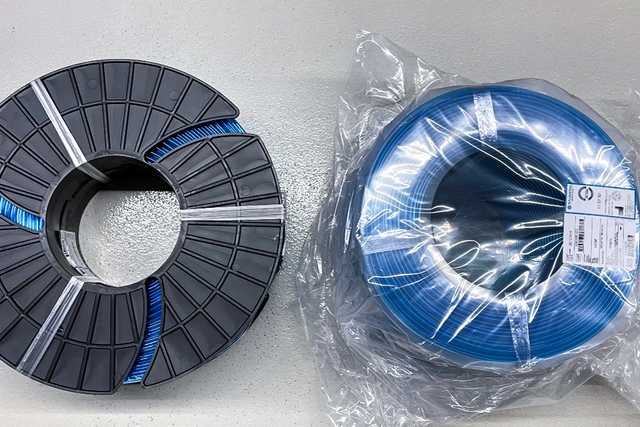
In the past, tubing for our flow sensors was delivered wound on plastic drums. These drums are single use and cannot be repurposed. Within just one year, more than 10,000 of them accumulated as waste for disposal. Together with our supplier Raumedic in Germany, we were able to find a solution that enables the tubing to be rolled up without the help of a drum.
The result is not only a massive reduction in transport volumes and potential CO2 emissions, but also a 12-ton reduction in plastic waste each year.
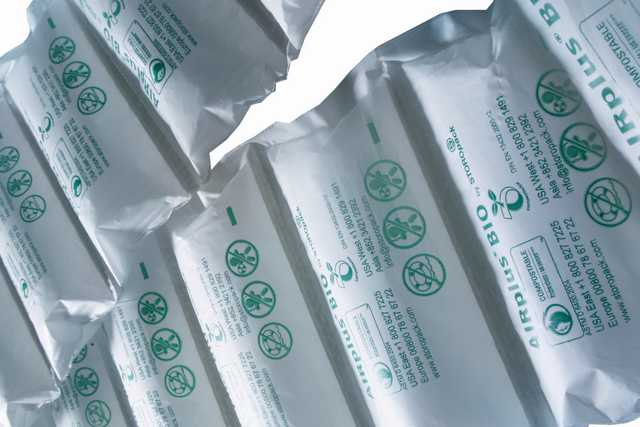
To protect our products from damage during transport, we previously used polystyrene chips as packaging material. Polystyrene is very difficult to almost impossible to recycle, and is not biodegradable. This made it something we needed to eliminate as soon as possible from our production process.
We replaced the polystyrene chips with Airplus® air pillows from Storopack, which can be recycled according to DIN Certco EN 13432.
The result is 10 m3 less of polystyrene waste per year.
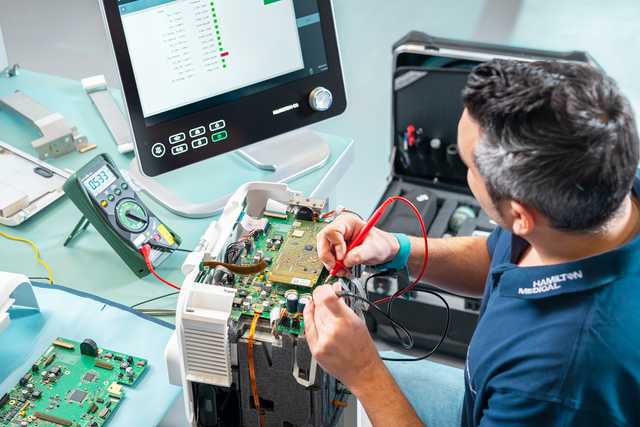
We have a multitude of other ideas and plans for making our processes more sustainable. Here is just one example: We still investigate every technical issue in Switzerland. The result? CO2 emissions caused by returning the device by air freight. That is why we have started to set up local service units at our subsidiaries in Birmingham, Navi-Mumbai, and Reno.
We expect this change to reduce the number of return shipments to Switzerland by 34% in 2025, saving more than 114 tons of CO2 per year compared to the existing process.
We are committed to helping medical teams deliver the best respiratory care - for anyone, anywhere. That is why we support a range of projects in different countries around the world.
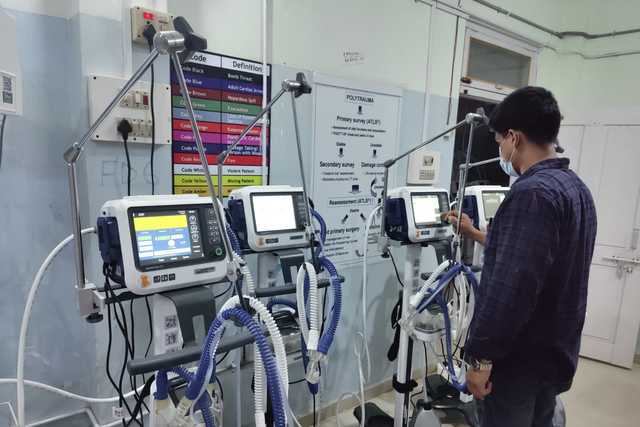
We have partnered with an NGO that set itself the goal of setting up a 10-bed ICU in every one of India's 300 rural districts.
Hamilton Medical is the exclusive supplier of ventilators for this project and are supporting it with several hundred ventilators on a not-for-profit base.

As the world’s third-poorest country, Malawi’s health sector is massively underfinanced. Even the simplest medical treatment or routine surgery presents a real challenge.
That is why we decided to support Lydia and Bernhard Widmann. Together with their three children, the two healthcare professionals emigrated to Malawi in April 2022 to support local staff with their knowledge and expertise.
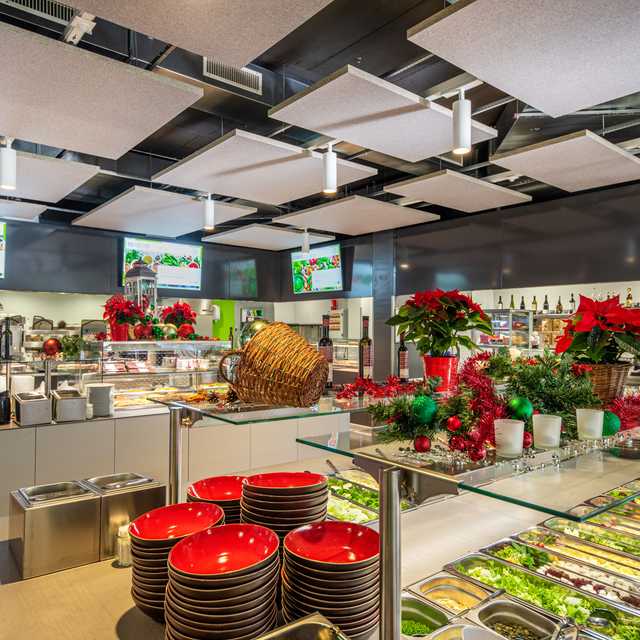
Employees are a company's most valuable asset and good health is the individual's. We place great importance on healthy nutrition with the emphasis on local produce, and seasonal fruit and vegetables. Vegetarian and vegan meals have been standard on our menu for a long time. Of course we still cater to meat-lovers, but with meat sourced exclusively from local farmers.
The ecological aspect also plays an important role: Food waste is converted into biogas and we have reduced the use of plastic to a minimum, for example by switching from PET bottles to tap water. Paper cups for hot drinks are also history. Everyone has their own flask and mug provided by the company.
We want to help our fellow humans - with ventilation technologies that are safe, effective, and lung-protective. And to lessen the load for those who make extraordinary efforts every day, helping seriously ill patients fight their way back to health.
That’s why we are committed to helping medical teams deliver the best respiratory care – to anyone, anywhere. Ever since we were founded in 1983, our focus has been on supporting the frontline heroes of critical care.
That commitment is present in everything we do.
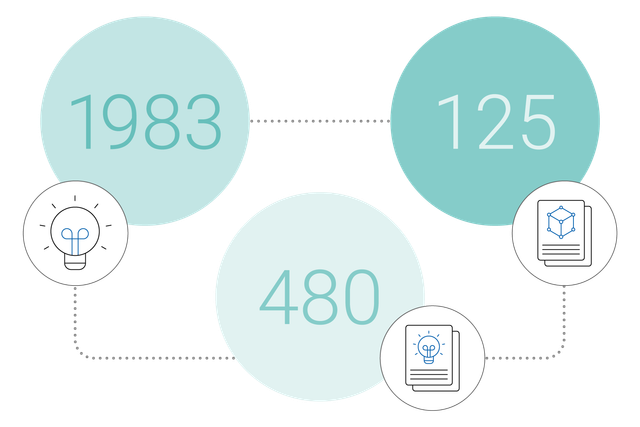
Since the foundation of Hamilton Medical, we have been driving innovation. We first entered the market with one of the first microprocessor‑controlled ventilators. In the decades that followed, we revolutionized mechanical ventilation – not just once, but time and again. Today, for example, you can see real-time respiratory data in the palm of your hand – the Hamilton Connect App streams it from the ventilator to your mobile device. What’s next? Stay tuned!
Our developers, programmers, and product managers are highly inventive. We register multiple new patents every year. As innovative strength is part of our DNA, this number will keep on growing.
We certainly don’t need to be shy in terms of design either. As at our 40th anniversary in 2023, we had more than 125 registered designs and design applications.

The future of ventilation is becoming increasingly digital. We have a team of more than 20 experts from different fields focusing solely on digital solutions.
As a family business, we invest more than average in research and new technology. Another 20 experts with PhDs in physics, mathematics, or medicine works exclusively in this field, collaborating closely with internationally renowned ventilation experts. Ideas for innovative technologies such as IntelliSync+ have been conceived and realized by this interdisciplinary team.
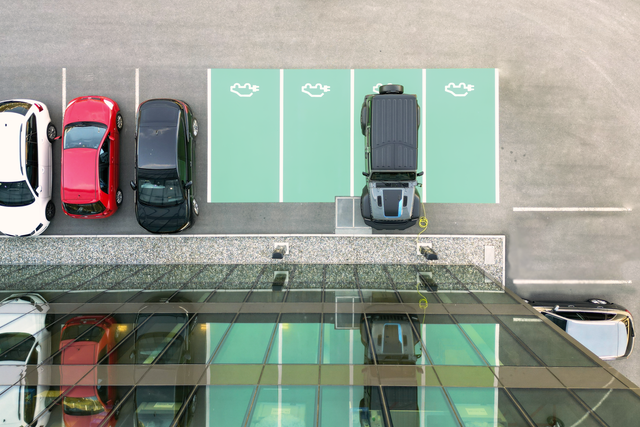
To promote the use of zero-emission cars and plug-in hybrid vehicles, we set up several charging stations for employees and visitors.
Our management leads by example: Over 50% of Hamilton Medical’s executive team drives either a fully electric car or a plug-in hybrid.